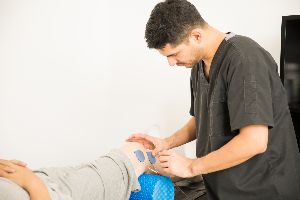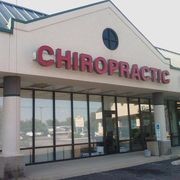
Chronic and acute back pain can be a burden to everyday life. Although medications are available, understanding different natural approaches to alleviate discomfort can help determine the optimal treatment. Use this guide to learn how a chiropractor uses electrotherapy and how it can benefit you.
What Is Electrotherapy?

Electrotherapy started in 1974 when American neurosurgeon Clyde Norman Shealy developed a medical device called Transcutaneous Electrical Nerve Stimulation, or T.E.N.S unit. These units have electrodes that send electrical impulses to disrupt the transmission of neural pain signals into the brain.
They are attached to the skin by a sticky pad and placed directly on the area where you're experiencing pain. This therapy promotes the production of hormones called endorphins and enkephalin, which reduce discomfort and stress. Although it employs electrical current, the low voltage impulses allow patients to experience pleasant and soothing sensations.
Who Can Electrotherapy Help?
The development of the T.E.N.S medical devices has lead to the safe and non-invasive treatment of chronic back pain, migraine, and gout. However, it wasn’t until the discovery of the hormone endorphins and its relation to electrotherapy that its scope of use widened.
For example, increased endorphins allow athletes to control pain after an injury. They also use it as electrical stimulation that helps increase white blood cells for faster wound healing. Additionally, this therapy is suitable for post-operative rehabilitation to re-establish muscle strength and restore functionality. It stimulates motor neurons to help muscles contract to avoid atrophy during recovery.
If you are experiencing chronic back pain or need assistance for post-operative recovery, turn to the chiropractic care experts at Midway Pointe Chiropractic. For over 20 years, this team of specialists has provided high-quality therapy using state-of-the-art equipment to clients throughout Lorain County. Aside from back pain relief, they offer chiropractic adjustment, X-rays, and spinal assessments. For more information, call (440) 324-2040 or visit their website.
About the Business
Have a question? Ask the experts!
Send your question

